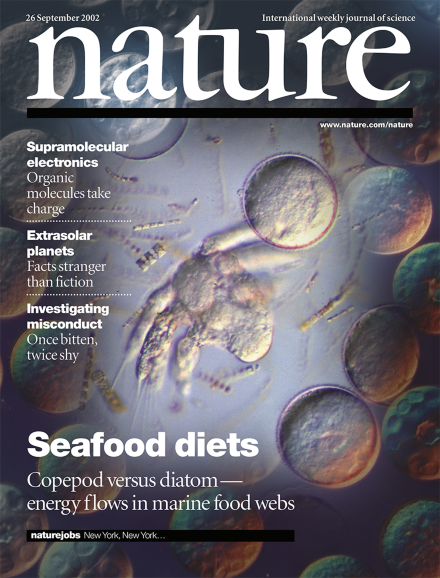Volume 419 Issue 6905, 26 September 2002
Prospects
Regions
Opinion
News
News in Brief
News Feature
Correspondence
Book Review
Concepts
News & Views
Correction
News & Views
News and Views Feature
-
Extrasolar planets
Collection:

